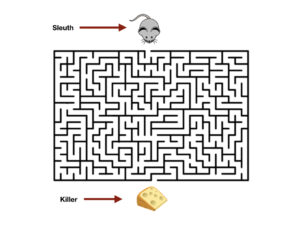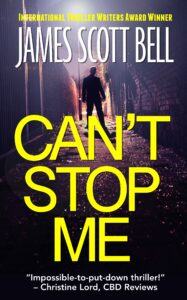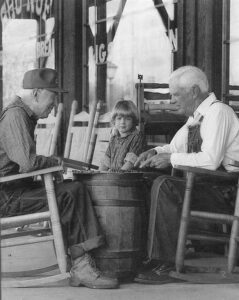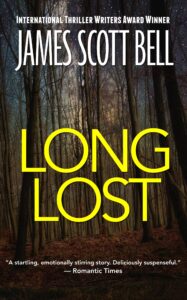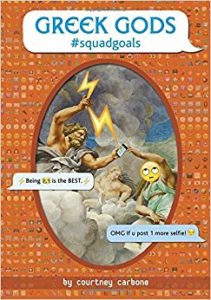by James Scott Bell
@jamesscottbell
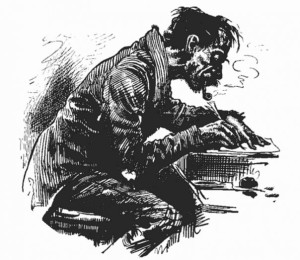 I love the writing craft. I love it the way Adrian Newey loves race car engines. I love popping the hood, breaking out the tools, getting greasy, figuring out ways to build better fiction.
I love the writing craft. I love it the way Adrian Newey loves race car engines. I love popping the hood, breaking out the tools, getting greasy, figuring out ways to build better fiction.
Maybe that’s because in the early years I had to work hard to make sense of it. I was not one of these happy geniuses that has the knack from the get-go. When I made my decision to be a writer, I found instant joy in setting words on the page. The only thing was, those words were not connecting with readers. People who looked at my stuff would say things like, “It’s just not working for me.” Or, “There’s something missing.”
So I doubled down on my study of the craft. I went to my favorite used bookstore and bought an armload of Grisham, Koontz, and King, and didn’t just read them; I studied them. I marked up the pages and made notes in the margins.
Ah, I see what he’s doing here!
This makes me want to turn the page!
I really like this character.
I bought books every month from the Writer’s Digest Book Club. One was Jack Bickham’s Writing Novels That Sell. The chapter on scene and sequel set off Roman candles in my head—an epiphany that I knew would change forever how I approached fiction.
I gave the next thing I wrote to one of my friendly readers, and this time he said, “Now you’ve got it.”
I felt like Orville Wright gliding over the sandy flatlands of Kitty Hawk as brother Wilbur waved his arms, shouting, “It works! It works!”
So if someone asks me what the best way is to learn how to write novels that sell, I’d put it this way:
Write a novel
I’m not being coy here. Write it the best way you know how. Don’t stop for any critiques, self or group. Finish the dang thing.
Then put it aside for three weeks. Print out a hard copy read it as if you were a busy Manhattan acquisitions editor looking at a manuscript on the subway. Have this question in the back of your mind: When am I tempted to stop reading? Mark those spots. But don’t do any editing.
When you’ve finished, make notes to yourself about the seven critical success factors of fiction as they show in your book: plot, structure, characters, scenes, dialogue, voice, meaning. How are you in those areas? Be ruthlessly objective. A good beta reader can help. If you want to appeal to actual readers someday and convince them to part with their discretionary income, you need to know if there’s anything disrupting the fictive dream. Quite often you’re too close to the book to see it. Maybe even a lot of it. But don’t despair, because you can…
…Get better at writing novels
I got good at plot, structure and dialogue (because I’d spent a couple of years working hard to figure those areas out). I got published. Then I got a multi-book contract and had the good fortune to work with a truly great fiction editor. In his first editorial letter to me he told me what I needed to hear, not what I wanted to hear. I groused for an hour, then resolved not to have a chip on my shoulder. I followed his advice and lo and behold my books started to pop up on bestseller lists.
So, new writer, get yourself rolling on two tracks—writing and study.
It’s NaNoWriMo month, and all over the globe writers are aiming to produce a 50k novel in 30 days. That’s pressure, especially with Thanksgiving in there. The main benefit of this exercise is seeing how many words you can write if you set your mind to it.
So figure out how many words you can comfortably write in a week, considering your life situation. Up that figure by 10% and make that your weekly goal.
That’s the writing part.
Add to that a systematic study the craft. There are craft books and courses (I modestly mention). Just as you write to a quota, study to a quota. In 35 years of wanting to do this, not a week has gone by when I haven’t thought about, read about, or made notes about the craft of writing.
Does this sound like too much work?
Does a wannabe golfer just go out and start hacking away (also known as killing gophers)? Or does he get some basic instruction and put in hours of practice?
There’s an old story about a golfer approaching a hole with a big water hazard. He wonders if he should tee up a brand new ball and risk losing it, or use one of his old balls just in case. So he tees up the old one.
A voice from the sky thunders, “Use the new ball!”
Whoa. Obediently, he tees up the new one.
The voice says, “Take a practice swing!”
He steps back and takes a practice swing.
The voice says, “Use the old ball!”
You have to practice a proper and repeatable swing, friends, otherwise you just ingrain bad habits.
Readers don’t spend money to read your bad habits.
So:
Write a novel.
Remove all shoulder chips.
Learn.
Write another novel.
Keep learning.
Write like you’re in love.
Edit like you’re in charge.
Keep writing.
Anything you want to add?

